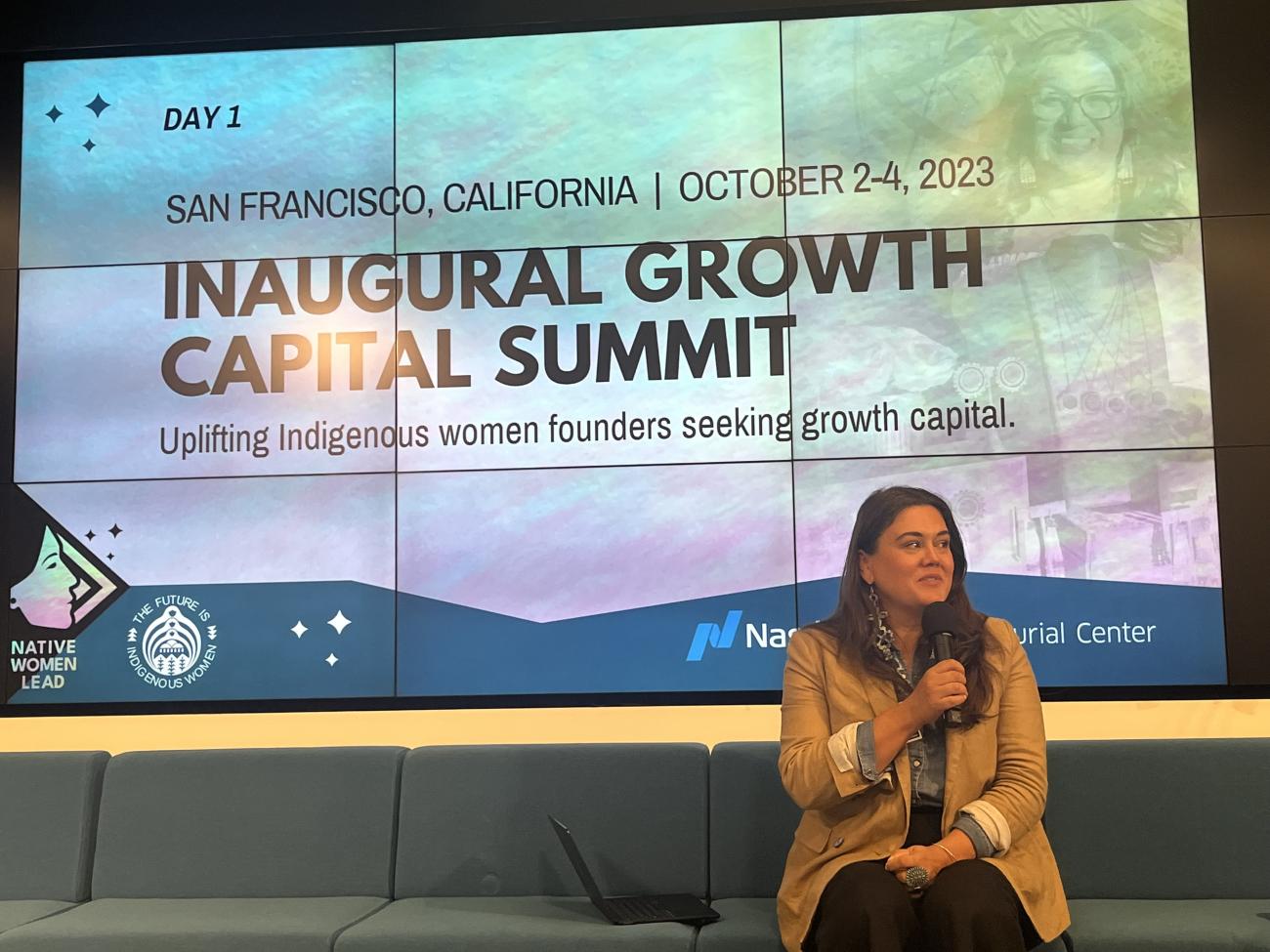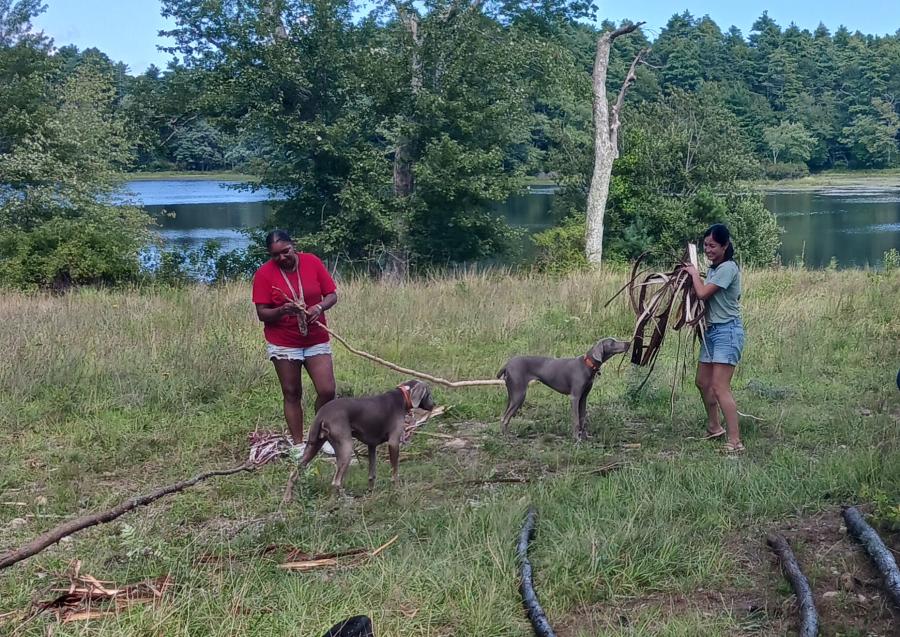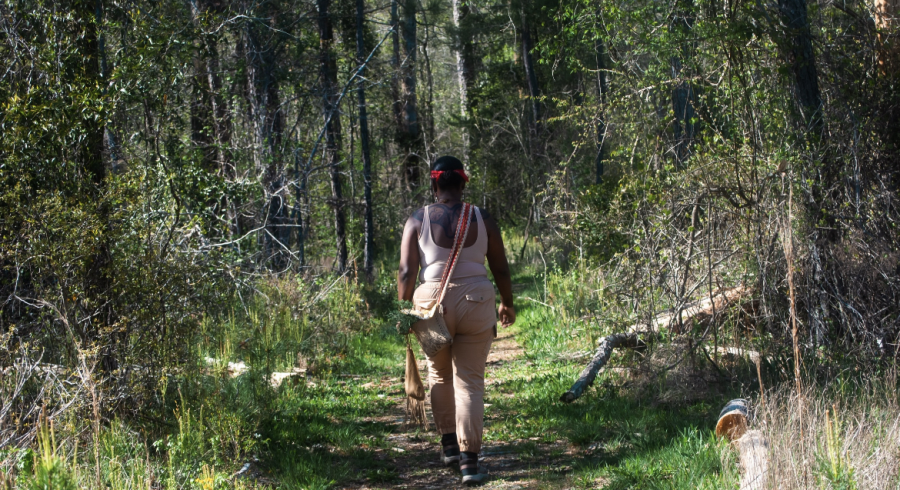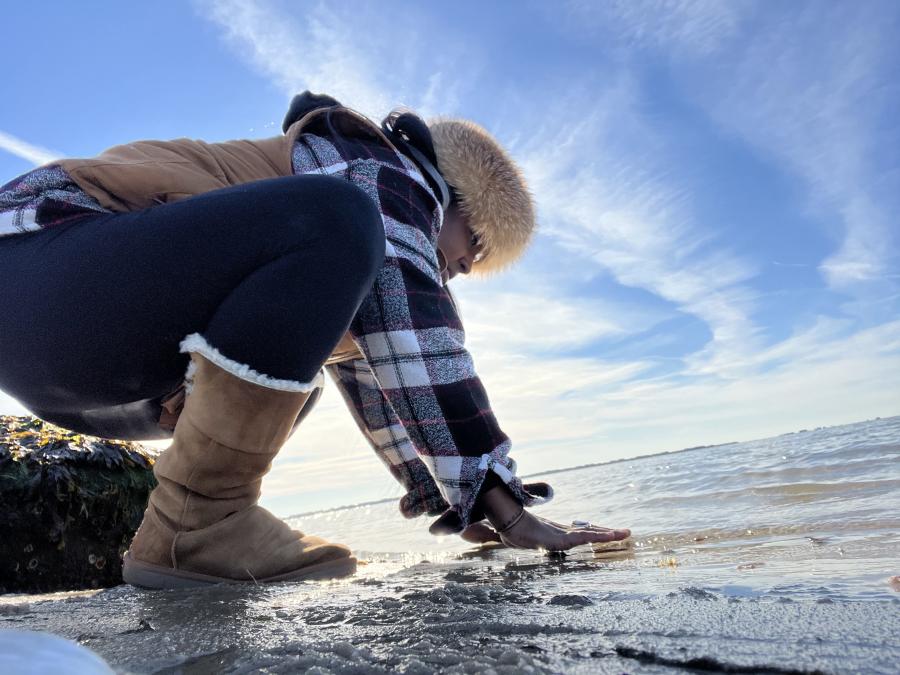
By Chenae Bullock (Shinnecock)
Indigenous Peoples hold tenure to over 25 percent of the world's land surface, which is home to about 80 percent of the remaining global biodiversity, all while making up just a bit over 6 percent of the human population. Investing in Indigenous communities can promote cultural continuity, economic empowerment, environmental protection, and social justice, leading to a more sustainable and equitable world for all.
Westernization and globalization have led to erosion of Tribal cultural practices. Far too often, the assimilation of Indigenous communities is described in the past tense, highlighting the colonial era when the first laws against traditional Indigenous ways of living became the foundation of westernization and globalization.
Hundreds of years after colonization began, communities of color still face several socioeconomic challenges. Some of the key factors contributing to these challenges include systemic racism, limited access to quality education and healthcare, income inequality, and disparities in housing and employment opportunities. These factors create barriers that hinder economic mobility and perpetuate social and economic disparities.
Recently, the 11th U.S. Circuit Court of Appeals in Atlanta ruled to temporarily block the Fearless Fund from running its Strivers Grant Contest, which is a program that awards $20,000 grants to small businesses that are led by at least one woman of color. The Strivers Grant is to help small businesses with digital tools to help them grow their business online, and mentorship so they can continue to bolster their business. There are four entry periods throughout the yearThe American Alliance for Equal Rights filed a racial discrimination lawsuit against the Fearless Fund program in August, claiming it violated the Reconstruction-era Civil Rights Act of 1866, which prohibits racial discrimination in contracts.
In response to the lawsuit, Arian Simone and Ayana Parsons, co-founder and CEO and COO of the Fearless Fund, respectively, issued the statement: “At a time when efforts to advance equity are under attack, the mission of our fund and our commitment to principles of anti-discrimination could not be stronger. We stand firm in our purpose to provide a gateway to economic freedom.”
Discriminatory practices, implicit biases, and unequal distribution of resources further exacerbate the challenges faced by Indigenous people and other communities of color. Addressing these issues requires comprehensive efforts to dismantle systemic racism, promote equitable policies, and provide equal opportunities for all individuals, regardless of their race or ethnicity. Socioeconomic challenges such as poverty and limited access to resources hinder the preservation and practice of cultural traditions. Economic pressures often prioritize immediate needs, making it difficult to allocate time and resources to cultural activities.
It is important to note that while these challenges exist, efforts are being made by Native American communities to revitalize and strengthen their cultural practices through cultural revitalization programs, language revitalization initiatives, and intergenerational knowledge-sharing platforms. One example is the Niamuck Land Trust, founded in November 2021 by members of the Shinnecock Nation Graves Protection Warrior Society. Composed solely of enrolled members of the Shinnecock Nation, the board members of the Niamuck Land Trust are committed to working to protect, preserve, and purchase burial sites and other culturally significant sites sacred to the Shinnecock Nation and our neighboring Indigenous communities. With a strong focus on cultural education of and for the Shinnecock community, the Trust was founded as an entity with the ability to raise funds and other resources to facilitate land acquisitions and continued stewardship of these sites for preservation, ceremonial, and educational purposes.
Indigenous ancestors who have suffered the hardships of colonization are not forgotten. There is a movement of remarkable resilience exhibited by Tribal communities in the face of rising investments into their economies, highlighting the transformative effects of these investments and their significant contributions to the strength, empowerment, and sustainable development of Tribal communities. Research and development projects led by Tribal communities are evaluating the multifaceted impacts of investments. This research sheds light on the potential for positive change and the crucial role investments play in fostering the resilience of tribal communities, ultimately leading to enhanced well being and self-determination.

Native women founders gathered at the NASDAQ Entrepreneurial Center for the Native Women Lead Growth Capital Summit in October 2023 to network with other Native women founders and investors, sharing access to resources and knowledge. Carol Anne Hilton (Hesquiaht), CEO and founder of the Indigenomics Institute and the Global Center of Indigenomics, spoke in a fireside chat about igniting the $100 billion Indigenous economy. She explained that if all levels of government procured five percent of their current spend from Indigenous businesses, it would equate to an influx of billions to the Indigenous economy, thus creating an opportunity to create prosperity and self-sufficiency for Indigenous Peoples across Turtle Island without any additional spending. Betsy Fore (Turtle Mountain Chippewa), Chief Impact Officer and co-founder of Native Rising—and the first Native American woman in history to raise series A financing—spoke during a panel at the summit about her drive to raise over $20 million to date. In 2022, venture capital firms invested $288 billion; women of color founders received only 0.39 percent of that funding.
There are a number of Native-led organizations that are focusing on contributing to Tribal sustainable economies:
- First Nations Development Institute
First Nations Development Institute began its national grantmaking program in 1993. Through mid-2023, they have successfully managed 3,052 grants totaling $64.7 million to Native American projects and organizations in 45 states, the District of Columbia, and American Samoa.
- Native Philanthropy and Candid
This is a joint project of Native Americans in Philanthropy and Candid, which focuses on building equity for Native Communities by equipping philanthropists with resources to maximize investments in Indigenous communities in the U.S. Their foundations map, the Investing in Native Communities Mapping Platform, is a data visualization application developed by Candid in partnership with Native Americans in Philanthropy.
- Skoden Ventures
Skoden Ventures invests in entrepreneurs meeting the demand for diverse products, services, and experiences. They invest in entrepreneurs seeking to generate financial returns, strengthen cultural assets, and advance social, human, and natural capital in communities.
- Raven Indigenous Capital Partners
Raven Indigenous Impact Funds invest in early and growth stage Indigenous companies that are helping to build a renewed and sustainable Indigenous economy across Turtle Island.
- American Indian College Fund
Since its founding in 1989, the American Indian College Fund has been the largest organization supporting Native student access to higher education in the United States. They provide scholarships and programming for American Indian and Alaska Native students to access higher education. Once students are in college, the Fund provides them with the tools and support to succeed.
—Chenae Bullock is an enrolled Shinnecock Indian Nation Tribal member and descendant of the Montauk Tribe in Long Island, New York. She is a community leader, water protector, cultural preservationist, Indigenous perspective historian, and humanitarian. She is also the founder and CEO of Moskehtu Consulting, LLC, and a 2022-2023 Cultural Survival Writer in Residence.
Photos: Native Women Lead Growth Capital Summit.



